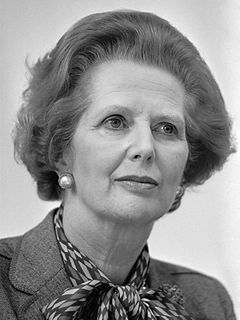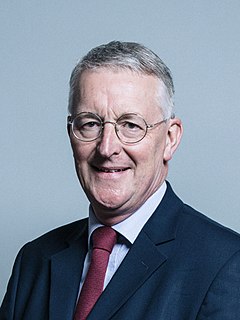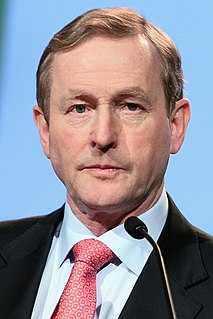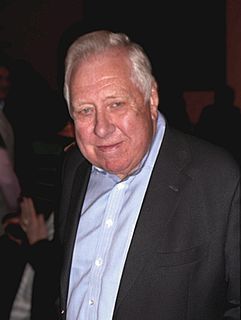Elections to the Labour Party's Shadow Cabinet (more formally, its "Parliamentary Committee") took place on 19 November 1981. There were 15 posts, rather than 12 as in previous years. In addition to the 15 members elected, the Leader (Michael Foot), Deputy Leader (Denis Healey), Labour Chief Whip (Michael Cocks), Labour Leader in the House of Lords (Lord Peart), and Chairman of the Parliamentary Labour Party (Jack Dormand) were automatically members.
The Labour Party is a centre-left political party in the United Kingdom that has been described as an alliance of social democrats, democratic socialists and trade unionists. The party's platform emphasises greater state intervention, social justice and strengthening workers' rights.

The Official Opposition Shadow Cabinet is, in British parliamentary practice, senior members of Her Majesty's Loyal Opposition who scrutinise their corresponding Government ministers, develop alternative policies, and hold the Government to account for its actions and responses. Since May 2010, the Labour Party has been Her Majesty's Loyal Opposition, and its leadership therefore forms the current Shadow Cabinet.

Michael Mackintosh Foot, was a British Labour Party politician, who began his career as a journalist on Tribune and the Evening Standard. He co-wrote the classic 1940 polemic against appeasement of Adolf Hitler, Guilty Men, under a pseudonym.
Of the 12 incumbent members, 10 were re-elected. Tony Benn, who was the top loser in 1980 automatically took the William Rodgers when the latter left the party to create the Social Democratic Party. He lost again in this election. It is unclear whether Roy Mason lost re-election or did not stand. The results of the election, though incomplete, are below [1]
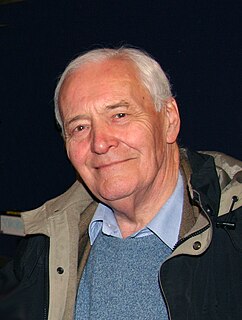
Anthony Neil Wedgwood Benn was a British politician, writer, and diarist. He was a Member of Parliament for 47 years between the 1950 and 2001 general elections and a Cabinet minister in the Labour governments of Harold Wilson and James Callaghan in the 1960s and 1970s. Originally a moderate, he was identified as being on the party's hard left from the early-1980s, and was widely seen as a key proponent of democratic socialism within the party.

The Social Democratic Party (SDP) was a centrist political party in the United Kingdom. The party supported a mixed economy, electoral reform, European integration and a decentralized state while rejecting the possibility of trade unions being overly influential within the industrial sphere.

Roy Mason, Baron Mason of Barnsley, was a British Labour politician and Cabinet minister who was Secretary of State for Defence and Secretary of State for Northern Ireland in the late 1970s.
| Colour key | Retained in the Shadow Cabinet |
|---|---|
| Joined the Shadow Cabinet | |
| Voted out of the Shadow Cabinet |
| Rank | Prior rank | Candidate | Constituency | Votes |
|---|---|---|---|---|
| 1 | 4† | Peter Shore | Stepney and Poplar | 147 |
| 2 | 3 | Gerald Kaufman | Manchester Ardwick | 142 |
| 3 | 1 | Roy Hattersley | Birmingham Sparkbrook | 135 |
| 4 | 7 | John Silkin | Lewisham Deptford | 132 |
| 5 | 2 | Eric Varley | Chesterfield | 131 |
| 6 | 4† | Merlyn Rees | Leeds South | 128 |
| 7 | 12 | Neil Kinnock | Bedwellty | 118 |
| 8 | 8† | Albert Booth | Barrow and Furness | 114 |
| 9 | 11 | John Smith | North Lanarkshire | 111 |
| 10 | 15 | Brynmor John | Pontypridd | 105 |
| 11 | 6 | Stanley Orme | Salford West | 104 |
| 12 | 14 | Bruce Millan | Glasgow Craigton | 92 |
| 13 | 16 | Eric Heffer | Liverpool Walton | 84 |
| 14 | ? | Peter Archer | Warley West | 83 |
| 15 | ? | Gwyneth Dunwoody | Crewe | 82 |
| 16 | 18 | Norman Buchan | West Renfrewshire | 80 |
| 17 | ? | Robin Cook | Edinburgh Central | 73 |
| ? | 13 | Tony Benn | Bristol South East | 66 |
| ? | ? | Giles Radice | Chester-le-Street | 60 |
| ? | ? | Jeremy Bray | Motherwell and Wishaw | ? |
| ? | ? | James Craigen | Glasgow Maryhill | ? |
| ? | 20 | Tam Dalyell | West Lothian | ? |
| ? | ? | Harry Ewing | Stirling, Falkirk and Grangemouth | ? |
| ? | ? | Robert Hughes | Aberdeen North | ? |
